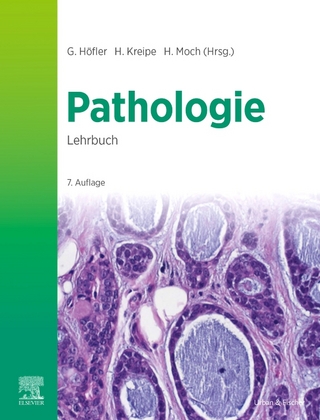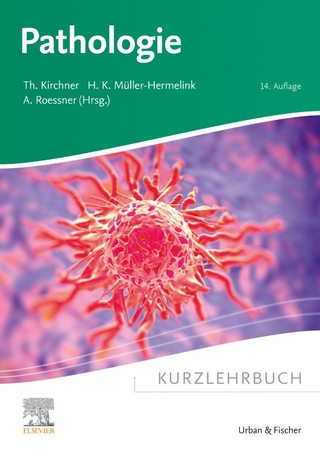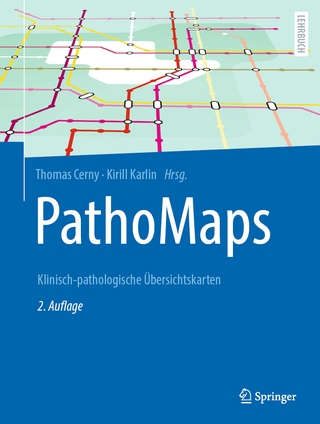
Precision Cancer Medicine
Springer International Publishing (Verlag)
978-3-030-84086-0 (ISBN)
This book describes the changing role of pathology in aiding reproducible and accurate patient selection for predictive cancer therapy. Particular attention is given to the clinical application of cutting-edge cancer biomarkers to accurately select patients for targeted cancer therapy and how artificial intelligence can improve the precision of treatments. The advent and basis of predictive cancer care, the role of pathologists in translational cancer research, the analysis of cancer samples, the management of biopsy results, and the accuracy of biopsy results are also discussed.
Precision Cancer Medicine: Role of the Pathologist details how pathologists can use the latest biomarkers and apply artificial intelligence technology in cancer diagnosis and management. It is also relevant to oncologists and medical practitioners involved in cancer management seeking an up-to-date resource on the topic.
lt;p>Bharat Jasani, BSc, PhD, MBChB, FRCPath, qualified with honours in Biochemistry (University of Glasgow,1965-1969), PhD in Experimental Pathology and MBChB (honours distinction in Pathology) (University of Birmingham, 1970-1976), to initiate his clinical and research training in Histopathology, at Wales National School of Medicine in 1977, achieving MRCPath (1989), FRCPath (1997), and a Specialist Consultant's status in Histopathology (Immunohistochemistry) (1993); followed by Personal Chair in Oncological Pathology (2003). and Headship of the University Hospital Wales Histopathology and Academic Pathology Department (2003-2011). Following his retirement in 2011, he continued as Professor of Pathology, Institute of Cancer & Genetics, Cardiff University & Associate Postgraduate Dean for Academic Medicine in Wales until 2015 when he was appointed the Chair of Biomedical Sciences, Nazarbayev University School of Medicine. Astana, Kazakhstan, with Adjunct Professorship in Pathology, University of Pittsburgh School of Medicine, Pittsburg, USA. In 2016 he was headhunted to take up his current position as the Director of Pathology, Targos Molecular Pathology GmbH, Kassel, Germany. Over his 40 years of service as a pathologist, Dr Jasani devoted himself to advancing cancer pathology through the use of cancer biomarkers starting as the Head of Molecular Diagnostic Unit, University Hospital of Wales (1982-2003), developing and establishing the first diagnostic immunocytochemistry & molecular pathology services in Cardiff and Wales. At the national level he promoted quality assurance and standardization of cancer biomarker analyses as Breast Cancer Module Leader of UKNEQAS of IHC/ISH, and at the international level as UK's lead representative on International Working Group on Standardization of Breast Cancer Biomarking, and the United States Sub-Committee on Quality Assurance for Immunocytochemistry. During this period he led several translational research projects on development of predictive biomarkers for colorectal and breast cancer, at the same acting as a Consultant and Key Opinion Leader to several leading biotech and pharmaceutical companies, and authoring a book, and writing over 50 chapters and reviews and over 225 peer reviewed research publications. His work also led to the patenting of the highly sensitive DNP-hapten sandwich and diaminobenzidine silver detection systems and the invention of the use of the autoclave and EDTA based antigen retrieval methods, and LR White tissue embedding for correlative LM/EM immunohistochemistry.
Ralf Huss, M.D., Ph.D. Ralf Huss holds an M.D. degree from the University of Erlangen-Nuremberg, and Ph.D. degree from the Ludwig-Maximilians-University Munich. Following internships and residencies in Medicine, Immunology and Transplantation Biology at the Memorial-Sloan-Kettering Cancer Center in NYC, the University Hospital in Zurich, Switzerland and the Fred Hutchinson Cancer Research Center in Seattle, WA, Dr. Huss was appointed senior resident at the Institute of Immunology in Essen, Germany in 1994, before he moved to the Ludwig-Maximilians-University in Munich to complete his training in anatomical, surgical and molecular pathology. In 2005 he was appointed Global Head of Pathology and Tissue Biomarker at the Pharmaceutical company Roche (Switzerland and Germany). After pioneering the integration of image analysis and computational pathology into the clinical histopathology workflow together with the Nobel Laureate Gerd Binnig at Definies / AstraZeneca, in 2020, Dr. Huss returned to academia and is currently Professor and Deputy Director at the Institute of Pathology and Molecular Diagnostics and at the Institute for Digital Medicine, University Hospital Augsburg, Germany. Professor Huss has published more than 150 scientific papers and 4 books in the fields of cell therapy, tissue phenomics and artificial intelligence in pathology. Dr. Huss holds severa
Part I Introduction.- Rationale & Role of Pathology in Personalised Precision Cancer Medicine.- Part II Preparation & Analysis of Cancer Samples for Digital & Computational Pathology Analysis.- Methods of Tissue Preparation & Analysis.- Part III Precision diagnostic, prognostic and predictive analysis of cancer for personalised cancer medicine.- Cancer Typing & Reporting.- Cancer Specific Applications.- Part IV Developing Digital and Computational Technology and Methods for Predictive Cancer Analysis.- Cancer Agnostic Predictive Analysis.- Development of Multiplexed Analysis.- Part V Future of Pathology in Cancer Medicine.- Discussion from a pathologist's perspective the fears and opportunities of the increasing use of digital and computational analysis in cancer pathology.- Conclusion.
"Research and clinical applications are woven throughout to provide real-world examples and illustrate future potential. The book is written with an international audience in mind, focusing on the American perspective for regulatory issues, with frequent reference to Clinical Laboratory Improvement Amendments for laboratory accreditation and the Food and Drug Administration for drug and companion diagnostic approvals. ... The authors are to be congratulated on comprehensive coverage of so many novel concepts in this very readable and accessible text." (Emily Shaw, The Bulletin of The Royal College of Pathologists, Issue 202, April, 2023)
“Research and clinical applications are woven throughout to provide real-world examples and illustrate future potential. The book is written with an international audience in mind, focusing on the American perspective for regulatory issues, with frequent reference to Clinical Laboratory Improvement Amendments for laboratory accreditation and the Food and Drug Administration for drug and companion diagnostic approvals. … The authors are to be congratulated on comprehensive coverage of so many novel concepts in this very readable and accessible text.” (Emily Shaw, The Bulletin of The Royal College of Pathologists, Issue 202, April, 2023)
| Erscheinungsdatum | 06.01.2022 |
|---|---|
| Zusatzinfo | XV, 237 p. 77 illus., 73 illus. in color. |
| Verlagsort | Cham |
| Sprache | englisch |
| Maße | 178 x 254 mm |
| Gewicht | 740 g |
| Themenwelt | Medizin / Pharmazie ► Medizinische Fachgebiete ► Onkologie |
| Studium ► 2. Studienabschnitt (Klinik) ► Pathologie | |
| Schlagworte | Cancer biomarkers • Pathology Reporting • Predictive Biopsy Analysis • Predictive targeted therapy • Tumour heterogeneity |
| ISBN-10 | 3-030-84086-7 / 3030840867 |
| ISBN-13 | 978-3-030-84086-0 / 9783030840860 |
| Zustand | Neuware |
| Haben Sie eine Frage zum Produkt? |
aus dem Bereich


